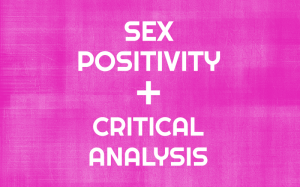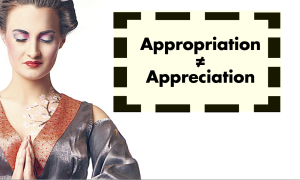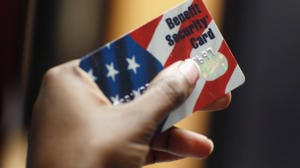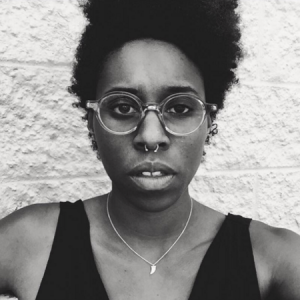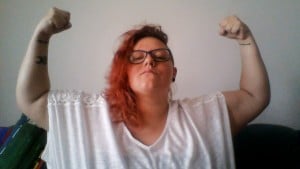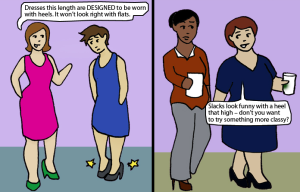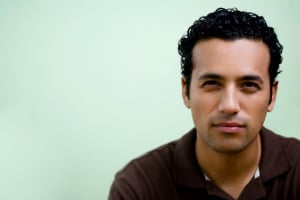
Source: Cascade AIDS
The first time a woman told me she distrusted me because I’m a man, she tried to explain that it wasn’t personal, that she’s not been given many reasons to trust me (or any man for that matter). She said she’s especially skeptical of me because I called myself a feminist.
That last part really threw me for a loop. She didn’t even really know me! And I’m a good guy!
Fast-forward a few years and how can I blame her? Male “feminist” allies have a history of abusing women’s trust.
For fear of making the movement look bad, the male “allies” of the Occupy Wall Street movement stood silent when multiple women came forward after having been sexually assaulted by other “Occupiers.”
After being lauded and defended by many (including myself) as a model for how to be a better man, Hugo Schwyzer was exposed to be a racist, abusive liar (as if many women of Color hadn’t been saying so all along).
Charles Clymer has been exposed as abusive and self-serving as he attempts to brand himself a “feminist” hero of some kind.
And this is nothing new!
There are stories going back to every era of the feminist movement — stories of men talking the talk of feminism, gaining trust, and using that trust to hurt, abuse, and act in profoundly anti-feminist ways.
It’s easy to criticize the misogyny of the MRAs or the PUAs. But how often do we turn the lens around?
When considering how often people like me (cisgender men who call ourselves “pro-feminist” or “feminist”) act in anti-feminist ways, I finally understand the distrust. After all, if those of us who fashion ourselves “allies” are unwilling to expose abusers, why should we be trusted?
Our role is not to be out front in the movement.
Our role needs to be to work with other male-identified people to uproot male supremacy and to transform what it means to be a man. And the place where we need to start is with other feminist/pro-feminist men.
Here are six simple (though often incredibly difficult) things we need to do starting right now.
1. Listen to People Facing Gender-Based Oppression
Sometimes I feel like a broken record in my writing, as I cannot say often enough how important it is for privileged people to listen. But I will say it again.
One of the foundations of effective ally work is listening to those who are impacted by oppression.
By starting with listening more and believing those impacted by oppression in what they’re telling us, we center the truths that we cannot every fully know.
And listening will go a long way in understanding what behaviors we need to expose and talk about with other men, particularly those behaviors so subtle and subconscious that we miss or ignore them.
2. Pay Attention to Intersectionality
In order to actually understand the harm done by male abusers, let alone male abusers who carry the feminist flag, we need to understand others and ourselves intersectionally.
If we’re going to call in other men, we need to recognize our positionality as informed by race, sexual identity, wealth, and other aspects of identity.
I once tweeted, “God, can he just go away forever!?” in response to something misogynistic Chris Brown had done. My friend Emiliano, a man I greatly admire and from whom I’ve learned a lot, tweeted something to the effect of “Jamie, I hear you, but please consider the implications of a White man calling for the disappearance of a Black man in the US.”
He was absolutely right. As a man striving to be an ally to women, I have a responsibility to call out male violence against women. But if I do so in ways that reinforce racism, I’m no intersectional ally.
Similarly, it’s a wholly different thing for me to call out a transgender person (regardless of how they identify) than it is for me to call out another cisgender man.
Does this mean that I cannot call in/out a transgender person? Absolutely not. After all, I know a few trans people who toe the MRA line.
I just need to consider my privilege and positionality in how I call someone to do better.
3. Start with Yourself
If you’ve been socialized in dominant constructions of gender in the US (and many other parts of the “Western” world for that matter), no matter how much you try to be an ally, you’re going to screw up.
This is because it takes tremendous work on self for those socialized into privilege to fight that socialization. So yeah, we should call out other men. But for every bit of energy we put into critiquing other men, we need to put four times as much energy into ourselves.
I’ve been there. I’ve done the mental backflips necessary to justify my sexist, chauvinist, anti-feminist behavior while calling myself “feminist.” There have been times when I’ve been terrible to women. There are still times when I live more fully in my patriarchal socialization than in my feminist values.
So the work of ending abuse committed by “feminist” men must inevitably mean that I start with myself.
4. Have the Courage to Call One Another In
I used to consider Hugo Schwyzer a friend. We talked somewhat regularly, I shared his work, I would look to him for guidance, and I defended him.
I trusted him because I saw myself in him. That’s terrifying to me now.
The truth is that I would hear allegations of his racism and his misogyny, and I just didn’t want to do the work to look further into these truths because I was afraid of what it might expose about myself.
Even when he gave me a sick feeling in my stomach and even when he said or published things that I found disgusting, I didn’t have the courage to call him in and hold him accountable.
I failed as an ally. Though I have apologized publicly, I still have to carry this weight of failure as I seek to do better, and earning trust is harder as a result.
What I should have done was look deeper, seek the truth (wherever that may lead), and have the courage to ask the hard questions of someone I trusted.
I should have called him into conversation about his abuse. Knowing that we’re all going to screw up, we can give one another the benefit of the doubt by calling on one another to be better, to live into our feminist values.
If in our discussion, we don’t get anywhere, further action will be needed. But knowing the growth process must all undertake, we have a responsibility to start with the “less disposable way of holding each other accountable.”
And in the future, I need to do better, which brings me to the fifth thing men need to do in exposing the abuse of other men.
5. Believe Those Who Speak Out Against (‘Feminist’) Men’s Abuse
In some ways, this is a repetition of number one, but when we are told that men, inside or outside of the feminist movement, are being terrible to women, acting in misogynistic ways, or otherwise perpetrating abuse, we need to listen.
We need to trust and believe those exposing this abuse and seek to understand and know more.
And when we hear these truths, we need to do something about it.
6. Take a Stand. Call Out Abuse. Hold Other Men Accountable.
If nothing else in feminism, this is our role.
I speak out against Charles Clymer’s abuse not to win points or make myself seem like the “best feminist man.” I call out his abuse, knowing that it exposes me to criticism for my shortcomings, by amplifying the voices of the women who he has hurt. I do so because it’s my responsibility.
It’s what I would expect from the men in my life. If I am hurting others (whether unintentionally through expressions of my privilege or overtly through some kind of abuse), I expect that the other men in my life will hold me accountable.
This is hard. It’s tremendously difficult because it ensures conflict and it exposes our vulnerability.
But too often, we protect other men in our silence. Too often, we sanction abuse with our silence. Too often, our most anti-feminist action is our lack thereof – our silence.
If there’s no acceptance of responsibility once we’ve tried calling in our brothers to seek space for change, we have a responsibility to speak out. We don’t need to do it with fanfare — and we surely shouldn’t expect a cookie — but we must act.
Undoubtedly our dissent will lead to blowback and defensiveness, but we have to be willing to risk relationships to expose abuse.
Sadly, if men’s abuse against women would end simply because women speak out against it, it would have ended long ago.
As men, particularly pro-feminist/feminist men, we need to realize that our voices, unfortunately, carry a different weight with other men — so we need to call them to be better. And when we’ve exhausted every other method of accountability, we need to kick them off the damn island.
***
As men in feminism, we are going to make mistakes. Most of those mistakes will be relatively small, but they damage trust in the context of abusive men in feminism. What happens after we’ve screwed up, then, is what matters. How do we work to do better? How do we prove that we’re worthy of future trust?
How do we work to hold other men accountable and to expose those who exploit the trust they’ve earned in feminism?
When I think back to that first time I was told by a woman that she didn’t trust me because I’m a man, I get it.
I believe that cis women and trans and gender non-conforming people ought to distrust me. And once I’ve earned someone’s trust, a healthy distrust is still warranted.
After all, my socialization is powerful. And it’s up to me to do the work, day in and day out, live into my feminist values. It’s up to me to earn trust every single day.
[do_widget id=”text-101″]
Jamie Utt is a Contributing Writer at Everyday Feminism. He is the Founder and Director of Education at CivilSchools, a comprehensive bullying prevention program, a diversity and inclusion consultant, and sexual violence prevention educator based in Minneapolis, MN. He lives with his loving partner and his funtastic dog. He blogs weekly at Change from Within. Learn more about his work at his website here and follow him on Twitter @utt_jamie. Read his articles here and book him for speaking engagements here.
Search our 3000+ articles!
Read our articles about:
Our online racial justice training
Used by hundreds of universities, non-profits, and businesses.
Click to learn more





